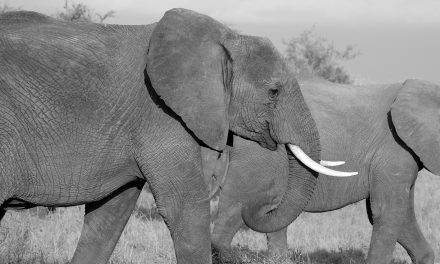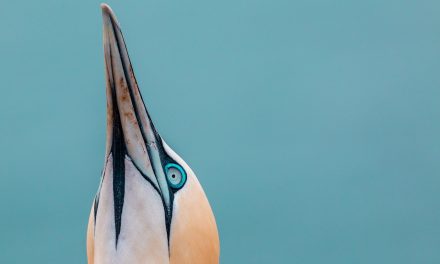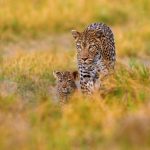Imagine embarking on a thrilling safari adventure in the heart of the African wilderness, where you not only witness magnificent wildlife but also engage in unique fitness experiences. In this article, we explore the concept of Safari Fitness, a trend that combines the awe-inspiring landscapes of Africa with invigorating exercise routines. Discover the exhilaration of jogging alongside graceful giraffes, doing yoga with a view of a majestic lion, and feeling the burn during a boot camp overlooking the vast savannah. Find out how Safari Fitness is redefining the traditional notion of a safari holiday, offering an unforgettable blend of adventure and physical wellness amidst the incredible beauty of Africa.
Why staying active in the African wilderness is important
Staying active in the African wilderness is not only an exciting adventure but also has numerous physical and mental benefits. The diverse landscapes and wildlife offer endless opportunities for outdoor activities that can keep you physically fit and mentally refreshed. Additionally, engaging in fitness activities while on safari allows you to contribute to wildlife conservation and support local communities. It is a unique way to explore the beauty of Africa while prioritizing your well-being.
Benefits of staying active
Staying active in the African wilderness brings a multitude of benefits to your physical and mental health. Engaging in regular activity helps improve cardiovascular health, increase endurance, and strengthen muscles. The varied terrains, such as mountains, plains, and rivers, provide a challenging and exciting environment for activities like hiking, trekking, and mountain biking. These activities not only elevate your heart rate but also improve balance and coordination.
Apart from the physical benefits, staying active in the African wilderness also has positive effects on mental well-being. Spending time in nature has been proven to reduce stress and anxiety levels, promoting a sense of peace and calm. The vast landscapes and awe-inspiring wildlife allow for enhanced mindfulness and appreciation of the present moment. It’s a chance to disconnect from the hustle and bustle of everyday life and reconnect with nature.

Challenges of staying active in the African wilderness
While staying active in the African wilderness offers incredible rewards, it is important to be aware of the challenges that may arise. The ever-changing weather conditions can present obstacles, from scorching heat to sudden downpours. It is essential to prepare for these conditions by wearing appropriate clothing and footwear, as well as carrying essential supplies like sunscreen, insect repellent, and a first aid kit.
Another challenge is the presence of wildlife. African wilderness is known for its diverse and unique animals, which means encounters with wildlife are not uncommon. It is crucial to be aware of your surroundings and follow safety guidelines to avoid any potential risks. Traveling in groups or with a knowledgeable guide can provide an extra layer of safety and ensure an enjoyable experience.
Best activities for staying active in the African wilderness
When it comes to staying active in the African wilderness, there is a wide range of activities to choose from, catering to various interests and fitness levels. Here are some of the best activities that allow you to engage with nature and get your heart pumping:
Hiking and Trekking
Hiking and trekking are popular activities in the African wilderness due to the vast network of trails and breathtaking landscapes. Whether it’s exploring the majestic Table Mountain in South Africa or embarking on a multi-day hike in the Rwenzori Mountains of Uganda, there are options for every level of hiker. These activities provide an excellent opportunity to immerse yourself in nature, with the chance to spot wildlife along the way.
Game Drives
Game drives offer a unique way to stay active while experiencing Africa’s incredible wildlife. Sitting in an open safari vehicle, you have the opportunity to explore national parks and private conservancies, spotting a wide variety of animals in their natural habitats. The bumpy terrain adds a touch of adventure to the experience, keeping you physically engaged throughout the drive.
Canoeing and Kayaking
For those who enjoy water-based activities, canoeing and kayaking offer a different perspective of the African wilderness. Navigating through tranquil rivers and lakes, you can witness a different side of nature and observe aquatic wildlife up close. These activities provide a full-body workout, engaging your core, arms, and back muscles while immersing you in the serene surroundings.
Mountain Biking
Mountain biking enthusiasts will find plenty of opportunities to explore the African wilderness on two wheels. From the rugged trails of the Drakensberg Mountains in South Africa to the scenic routes of the Great Rift Valley in Kenya, there are diverse terrains to suit all skill levels. Mountain biking allows you to cover greater distances and experience the thrill of speed while staying active.
Swimming
Swimming in natural bodies of water, such as lakes or waterfalls, is a refreshing and invigorating way to stay active in the African wilderness. Many safari destinations offer opportunities for a dip in safe swimming areas, allowing you to cool off after a day of exploration. Swimming engages multiple muscle groups, improves cardiovascular fitness, and provides a unique way to connect with nature.
Yoga and Meditation
For those seeking a more peaceful and introspective approach to fitness, practicing yoga and meditation in the African wilderness can be a transformative experience. The serene surroundings and calming presence of nature create an ideal environment for mindfulness and self-reflection. Many lodges and camps offer yoga classes and meditation sessions, allowing you to nourish both your body and mind.

Safety tips for staying active in the African wilderness
While staying active in the African wilderness is an incredible experience, it is important to prioritize safety to ensure an enjoyable and risk-free adventure. Here are some safety tips to consider:
Stay hydrated
The African wilderness can be hot and demanding, making it crucial to stay hydrated. Carry a water bottle with you at all times and drink regularly, even if you do not feel thirsty. It is advisable to bring water purification tablets or a filtering system in case clean drinking water is not readily available.
Wear appropriate clothing and footwear
Proper attire is essential for staying comfortable and protected in the African wilderness. Opt for lightweight, breathable clothing that shields you from the sun while allowing freedom of movement. Wearing long sleeves and pants can help protect against insects and thorny vegetation. Choose sturdy and supportive footwear that is suitable for the activities and terrain you will encounter.
Protect yourself from the sun
The African sun can be intense, so it is crucial to protect your skin from harmful UV rays. Apply a broad-spectrum sunscreen with a high SPF, wear a wide-brimmed hat, and use sunglasses to protect your eyes. Additionally, consider using lip balm with SPF and seek shade during the peak hours of sun exposure.
Be aware of wildlife
Encounters with wildlife are part of the allure of the African wilderness, but it is important to maintain a safe distance and respect their space. Keep a safe distance from wild animals, as approaching too closely can be dangerous and disruptive to their behavior. Follow the instructions of your guide, who will have the necessary knowledge and experience to navigate wildlife encounters safely.
Travel in groups or with a guide
Exploring the African wilderness is best done with others or in the company of a knowledgeable guide. Traveling in a group provides safety in numbers and ensures that assistance is readily available if needed. A guide can offer valuable insights, navigate unfamiliar terrain, and provide expert advice on wildlife and safety protocols.
Carry essential supplies
When participating in fitness activities in the African wilderness, it is essential to carry a few essential supplies. These may include a first aid kit, insect repellent, a whistle, a headlamp or flashlight, and a multipurpose tool. It is also advisable to carry a map or GPS device to navigate unfamiliar areas confidently.
Preparing for a fitness-focused safari
When planning a fitness-focused safari, there are several steps you can take to ensure you are adequately prepared. Here are a few essential tips:
Consult with a healthcare professional
Before embarking on a fitness-focused safari, it is advisable to consult with a healthcare professional. They can assess your current health status, provide guidance on any necessary vaccinations or medications, and offer recommendations for physical preparation.
Start a fitness routine
To fully enjoy the activities in the African wilderness, it is beneficial to start a fitness routine well in advance. Focus on cardiovascular exercises, strength training, and flexibility to improve overall fitness levels. Regular exercise leading up to your trip will prepare your body for the physical demands of activities such as hiking, biking, and canoeing.
Pack appropriate gear
Having the right gear is essential for a comfortable and enjoyable fitness-focused safari. Invest in quality hiking boots or trail running shoes, breathable and moisture-wicking clothing, and a comfortable backpack to carry your essentials. Don’t forget to pack a hat, sunglasses, a good-quality water bottle, and any necessary equipment for your chosen activities.
Research the safari location
Each safari destination in Africa offers a unique set of opportunities and challenges for fitness enthusiasts. Research the specific location you plan to visit, including the terrain, climate, and recommended activities. This information will help you pack appropriately and mentally prepare for the physical demands you may encounter.
Learn about local customs and etiquette
Respecting local customs and etiquette is essential when visiting any foreign destination, including the African wilderness. Take the time to learn about the local culture, traditions, and appropriate behavior, both in wildlife areas and when interacting with local communities. This will ensure a respectful and meaningful experience for both you and the local people.

Tips for maintaining fitness during a safari
While on safari, it is important to prioritize fitness and maintain an active lifestyle. Here are some tips to help you stay fit and active throughout your safari adventure:
Make time for daily exercise
Even though your days may be filled with safari activities and wildlife sightings, it is important to set aside time for regular exercise. Dedicate at least 30 minutes each day to get your heart rate up and engage your muscles. This can be as simple as going for a jog, doing a quick workout in your accommodation, or participating in organized fitness activities offered by the safari operator.
Incorporate core and strength training
In addition to cardiovascular exercise, incorporating core and strength training exercises into your routine will help you stay fit and strong. Simple bodyweight exercises like squats, lunges, push-ups, and planks can be done anywhere and do not require any equipment. Utilize your surroundings, such as fallen logs or rocks, for added resistance during your workouts.
Find opportunities for active exploration
While on safari, look for opportunities to explore on foot rather than always relying on vehicles. Take guided nature walks, hike to viewpoints, or simply stroll around the camp or lodge grounds. This not only provides exercise but also allows for a closer connection with nature and the chance to spot smaller wildlife and bird species.
Use nature as your gym
The African wilderness provides a natural playground for fitness enthusiasts. Take advantage of the diverse landscapes to engage in outdoor activities that challenge your fitness level. Climb hills or rocks, jump over fallen trees, or do interval training by alternating between walking, jogging, and sprinting. Embrace the natural elements and let them inspire your workouts.
Join organized safari fitness activities
Many safari lodges and camps now offer organized fitness activities, such as yoga classes, group hikes, or bush workouts. Take advantage of these additional activities to complement your own fitness routine. Not only will you meet like-minded individuals, but you will also receive guidance and motivation from qualified instructors.
Benefits of safari fitness for mental well-being
Engaging in fitness activities while on safari not only benefits your physical health but also has positive effects on your mental well-being. Here are some of the mental benefits you can experience:
Reduced stress and anxiety
Spending time in the African wilderness, surrounded by natural beauty and wildlife, has a calming effect on the mind. The peacefulness and tranquility of nature help reduce stress levels and alleviate anxiety. The opportunity to disconnect from technology and daily responsibilities allows for mental rejuvenation and a break from the pressures of everyday life.
Enhanced mindfulness and appreciation
Safari fitness activities provide a unique opportunity to practice mindfulness and be fully present in the moment. Whether it’s trekking through a dense forest or quietly observing wildlife, the enchanting surroundings encourage a deep sense of appreciation and gratitude. Being attuned to your senses and fully immersed in nature enhances the overall safari experience and promotes a positive mindset.
Connection with nature
Engaging in physical activities in the African wilderness fosters a deeper connection with nature. The chance to hike alongside towering mountains, cycle through vast savannas, or paddle on serene rivers brings you closer to the natural world. This connection can lead to a sense of awe and reverence for the environment, creating a greater desire to protect and conserve it.
Opportunity for self-reflection and personal growth
The solitude and silence of the African wilderness provide an ideal environment for self-reflection and personal growth. Away from distractions and daily routines, you have the opportunity to introspect, set goals, and gain clarity on various aspects of your life. The challenges faced during fitness activities can also foster resilience and personal growth, as you push beyond your comfort zone and discover new strengths.
Combining fitness with wildlife conservation
Engaging in fitness activities during your African safari can go hand in hand with supporting wildlife conservation efforts. Here’s how you can combine fitness with conservation:
Eco-friendly safari options
Choose safari operators and accommodation that prioritize eco-friendly practices. Look for lodges and camps that minimize their environmental impact through sustainable practices, such as energy conservation, water management, and waste reduction. By supporting these establishments, you contribute to the preservation of the natural habitats that make African wildlife thrive.
Participating in conservation activities
Many safari operators offer opportunities to actively participate in conservation activities. This may involve engaging in citizen science projects, assisting with anti-poaching efforts, or joining community initiatives that promote conservation education. These activities not only contribute directly to wildlife conservation but also provide a deep sense of fulfillment and purpose.
Supporting local communities and wildlife initiatives
By staying at locally-owned lodges and camps, eating at local restaurants, and purchasing locally-made products, you support the local communities surrounding wildlife areas. This economic empowerment is essential for the successful coexistence of communities and wildlife. Additionally, consider donating to reputable wildlife conservation organizations or supporting initiatives that focus on conservation education and awareness.
Choosing the right safari destination for fitness enthusiasts
When planning a fitness-focused safari, it is important to choose a destination that offers a wide range of outdoor activities. Here are some options to consider:
National parks with diverse outdoor activities
National parks such as Kruger National Park in South Africa, Serengeti National Park in Tanzania, and Masai Mara National Reserve in Kenya offer a wealth of outdoor activities. These parks often have established hiking trails, designated cycling routes, and guided nature walks. Choose a park that aligns with your interests and fitness goals, ensuring there are ample opportunities to explore and stay active.
Private game reserves with fitness-focused programs
Some private game reserves and lodges specialize in offering fitness-focused programs and activities. These establishments often employ qualified fitness trainers or yoga instructors who lead sessions tailored to guests’ fitness levels and preferences. Depending on the lodge, activities may include guided hikes, yoga sessions, circuit training, or bush runs. Consider these options if you prefer a structured fitness program during your safari.
Guided expeditions for hiking and mountaineering
For experienced hikers and mountaineers, guided expeditions to Africa’s highest peaks, such as Mount Kilimanjaro in Tanzania or Mount Kenya in Kenya, provide the ultimate fitness challenge. These expeditions offer a combination of physical exertion, breathtaking scenery, and the accomplishment of summiting iconic mountains. Safety is paramount, so choose reputable guides who prioritize your well-being and have extensive experience in guiding on these mountains.
Budget-friendly options for safari fitness
A fitness-focused safari doesn’t have to break the bank. Consider these budget-friendly options:
Camping and self-guided activities
Camping in designated campsites within national parks or private reserves can be an affordable way to experience the African wilderness. Many campsites offer shower facilities and basic amenities, allowing you to stay active during the day and relax in the evenings. Self-guided activities such as hiking or cycling can be done at your own pace, minimizing additional costs.
Group tours and packages
Joining a group tour or booking a package with a safari operator can often provide cost savings. Group tours allow you to share expenses with other travelers while still enjoying the benefits of a guided experience. Safari packages may include accommodation, meals, and activities, providing a comprehensive experience without the need for additional planning.
Off-peak and shoulder seasons
Consider traveling during off-peak or shoulder seasons to take advantage of lower rates. These periods, typically outside of school vacations and major holidays, offer cost savings while still allowing you to experience the wonders of the African wilderness. Research the weather patterns of your chosen safari destination to ensure your fitness activities won’t be compromised by unfavorable conditions.
Conclusion
Staying active in the African wilderness through fitness-focused activities offers an unforgettable adventure with numerous physical and mental benefits. By engaging in activities such as hiking, game drives, canoeing, and yoga, you can enhance your fitness levels, reduce stress, and connect with nature on a deeper level. Additionally, incorporating fitness into your safari experience allows you to contribute to wildlife conservation efforts and support local communities. Choose a safari destination that aligns with your fitness goals and interests, ensuring a holistic and unforgettable experience. Embrace the adventure of staying active in the African wilderness while enjoying the incredible physical and mental benefits.












